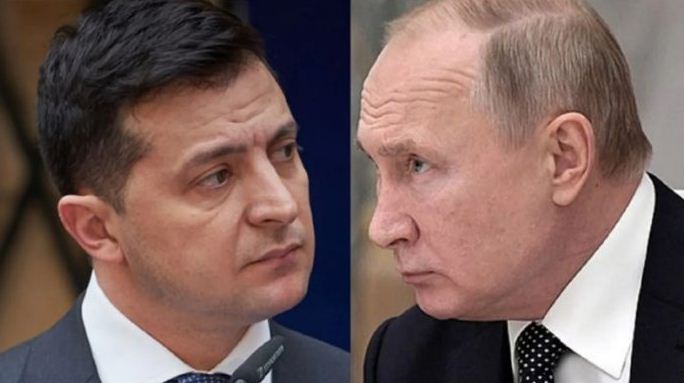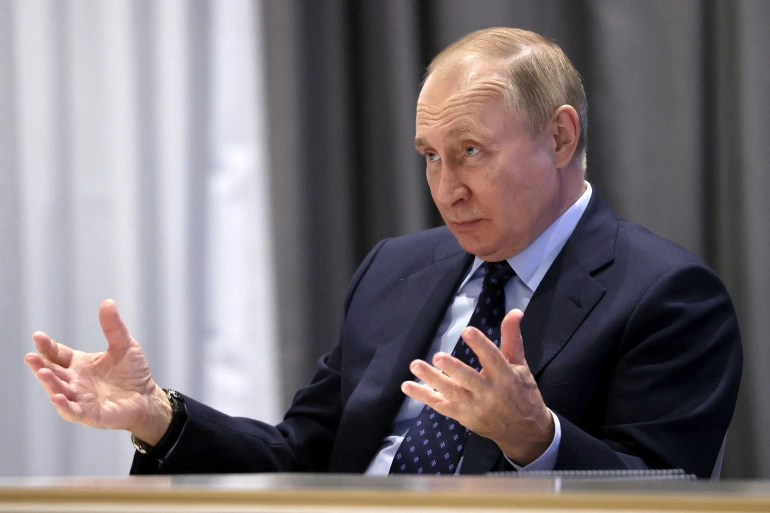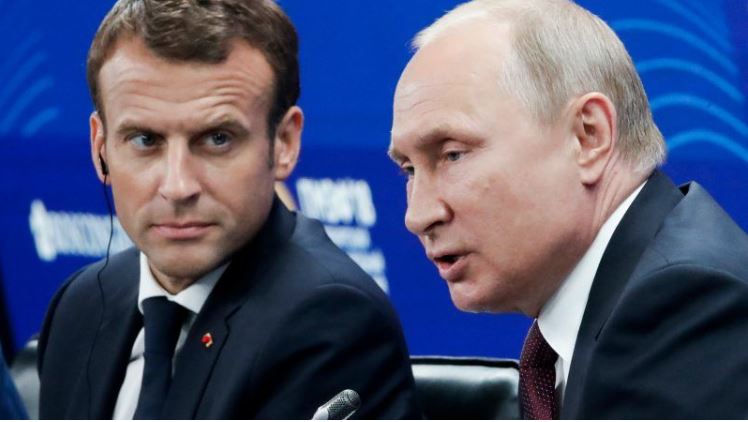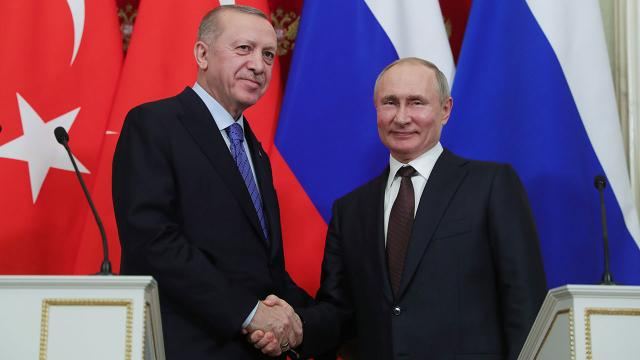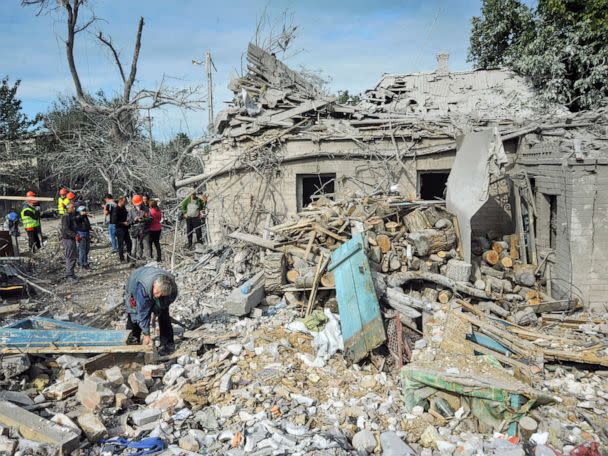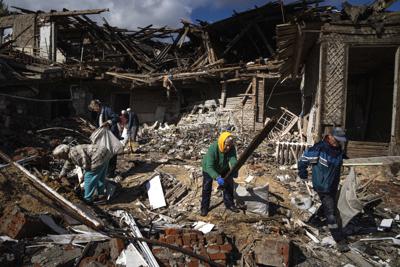By midnight of December 31st, 2022, joyous sound of fireworks will reverberate through the skies of most towns and cities across the world in celebration of the dawn of 2023. But for the people of Ukraine, it will be the now-familiar sound of fire from machine guns, tanks, artillery, missiles, jet fighters, and bombers, which signify nothing but death, destruction, and misery. For, since Vladimir Putin’s war machine rumbled into their country on February 24, 2022, Ukrainians have known no peace.
While most people are still aghast at the occurrence of this conflagration in a 21st Century European society, Russia continues to intensify its indiscriminate bombardment of Ukrainian towns and cities. And, from the plethora of related analysis, an incontrovertible fact emerges: that Ukraine would not have been exposed to Russian military aggression if the country had not given up the nuclear weapons it inherited from the defunct Soviet Union, in accordance with the terms of the “1994 Budapest Memorandum on Security Assurances.”
“Might is right,” wrote the German-born American Anarchist, Ragnar Redbeard, in his 1896 publication of same title, aka “Survival of the Fittest.” Drawing from Social Darwinism, and deploying virulent incendiary language, Redbeard denounced all Judeo-Christian principles of rights and wrongs, and condemned modern societal principles of justice, equity, morality, etc. Hear him:
“Blessed are the strong, for they shall possess the earth; cursed are the weak, for they shall inherit the yoke … Blessed are the bold, for they shall be masters of the world; cursed are the humble, for they shall be trodden under hoofs … Human rights and wrongs are not determined by justice, but by might … Each molecule, each animal, fights for its life … the survival of the strongest is the iron law of history.”
President Putin may not have read Redbeard’s “Might is Right,” but as an irredentist, who glorifies Russia’s military might at every opportunity, he certainly understands that in international relations power plays a dominant role. For, whenever he discusses his Ukrainian war casus belli, he never fails to accuse the US of unbridled exhibition of military power across the globe. Whereas, if the truth were to be told, Russia stands condemned for same exhibition of military power by its unprovoked aggression against its neighbour.
In course of announcing the annexation of occupied Ukrainian regions of Donesk, Lugansk, Kherson, and Zaporozhye on September 30, 2022, Putin accused the US of being “the only country in the world that has used nuclear weapons twice, destroying the cities of Hiroshima and Nagasaki in Japan.” He went further to state that in course of the 2nd World War, the US and Britain reduced most German cities to rubble because, just like the nuclear bombing of the two Japanese cities, they wanted to “intimidate our country and the rest of the world.”
Viewed from the perspective of Cold War political currents, Putin might be right that the US had always sought to resolve international conflicts through unilateral military action, as it did in Grenada in 1983, Libya in 1986, and Panama in 1989. But even so, post-2nd World War history is replete with instances of display of military might by the super powers, with the US setting the tone in its 1960 – 1975 military intervention in Vietnam. The Soviet Union followed suit in its 1979 – 1989 occupation of Afghanistan, while the US once again showcased itself in Iraq between 2003 – 2011. Suffice to say that both powers were dealt humiliating blows in course of their military adventurism.
Be that as it may, Russia’s ongoing brutal and barbaric military campaign in Ukraine belies President Putin’s accusation against the US’ conduct during the 2nd World War. As witnessed by the International Criminal Court (ICC) and the United Nations Human Rights Council (UNHRC), Russian forces have shown utter disregard for the sanctity of human lives in course of their punitive military campaign, as they leave a trail of mass graves, smouldering ruins, and human misery in their wake.
Truly, occurrences in the ongoing war had been predicted by analysts, including Yours Sincerely (see The News Guru article titled “Ukraine Crisis: War is Not Inevitable if Preventive Diplomacy is on the Cards”). For instance, it was noted that Ukraine’s inferior armed forces would be unable to repel Russia’s invading forces without the direct intervention of their NATO partners; and that restriction of hostilities to Ukraine’s territory would only serve to heighten Russia’s unwillingness to end its aggression, since its civilian population will not be directly impacted by the war.
Indeed, Ukrainian forces are presently unable to respond to Russia’s missile barrage because the US and its NATO allies have refused to provide them with long-range weapons – a situation occasioned by Putin’s threat to resort to nuclear weapons in the event of Ukraine being provided with military capabilities that could pose “existential threat” to the Russian “motherland.” It’s a scenario akin to a boxing fight in which one of the boxers has one of his hands firmly tied behind his back. For how long will the rest of the world allow this pitiable situation to prevail in the Ukrainian war?
In light of the foregoing, the self-ruled Pacific Island of Taiwan must tread cautiously as it confronts a revanchist China in asserting its independence status, which is not officially recognized by most countries of the world, including the US that has “committed” to protecting her against Chinese military aggression. But, while the US may readily arm Taiwan against Chinese aggressive designs, the Ukrainian war has shown that mere possession of arms is not enough for a militarily-inferior entity to tip the scales of war against a global military power.
“Will the US defend Taiwan against Chinese military invasion?” Asked by a reporter at a joint news conference with Japanese Prime Minister Fumio Kishida on May 22, 2022, President Joe Biden responded: “That’s the commitment we made … we agree with ‘One China’ policy. We signed onto it and all the attendant agreements made from there. But the idea it (Taiwan) could be taken by force, it’s just not appropriate. It’ll dislocate the entire region and be another action similar to what happened in Ukraine. And so, it’s a burden that is even stronger.”
But even so, the Taiwanese authorities must seek concrete guarantees from the US and other allies, that any armed conflict with China would not be restricted to Taiwanese territory, but will be extended to the Chinese mainland through every available means. In essence, it will not be a one-sided affair involving the destruction of Taiwanese towns and cities by Chinese forces. Otherwise, such a military confrontation is totally unnecessary and should be avoided at all costs.
But even at that, all parties to the simmering Sino-Taiwanese conflict should work relentlessly towards resolving it diplomatically, rather than seek a military solution. Particularly, Taiwanese leaders must realize that pacifist diplomacy is not synonymous with unpatriotism and cowardice, and that war serves no useful purpose other than the benefits that accrue to the global military-industrial complex, represented by vicious arms dealers, unscrupulous mercenaries, profiteers, and sundry base elements.
Unfortunately, most states have imbibed the erroneous notion that exhibition of military might deters external aggression. With North Korea seemingly getting away with its provocative nuclear sabre-rattling and missile tests, countries like Iran have certainly concluded that acquisition of nuclear weapons and their delivery systems is the only effective deterrence against adversarial threats. And, going by occurrences in Ukraine, where Russian military might is proving right, Iran and its ilk might just be right.



